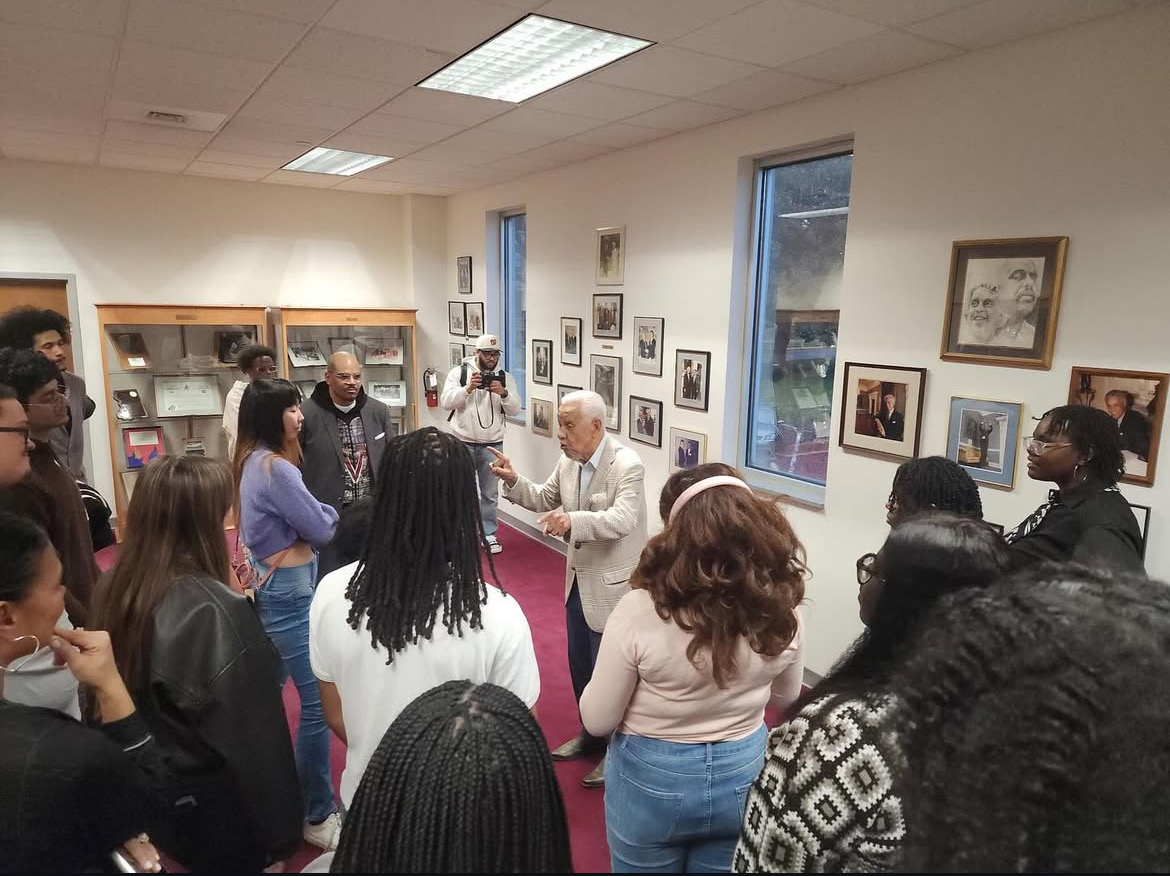Like many campus offices, Student Health and Counseling (SHAC) has faced a difficult reality this spring amid the collective transition online. For SHAC, in-person appointments and services are no longer an option. With its on-campus clinic closed for the term, SHAC has leveraged telehealth tools to continue to offer the majority of its standard services remotely.
Marit Lysne, director of SHAC, said that the clinic’s transition to telehealth during the COVID-19 pandemic has largely been successful. “This is a challenging situation for everyone, which is why it was so important to SHAC and to the college that we continue to provide these services to students even though they had to leave the state,” she explained. “We’ve been able to do that.”
According to Lysne, SHAC continues to offer medical, psychiatric and counseling care, with appointments conducted via video call. Medication management services are available through SHAC’s psychiatric consultant, and the 24/7/365 phone line for mental health emergencies remains in operation. SHAC’s two meditation offerings—”Time to Meditate” and KORU—shifted online this term.
The clinic is not offering its typical group therapy programs this spring, Lysne said, apart from a group co-facilitated with the Gender and Sexuality Center with a focus on LGBTQ issues. SHAC usually runs two or three group therapy programs per term.
Lysne said that student utilization of counseling and psychiatry services has generally been consistent with what SHAC sees during a normal term. Use of medical services has decreased somewhat, Lysne reported, but she believes this is due to students opting to seek care in their local communities for acute issues like an illness or rash.
Students are continuing to schedule appointments with SHAC to address more private medical issues, such as conversations about birth control, Lysne added. The clinic is also using secure messaging to answer students’ medical questions and direct them to care in their local communities.
All of SHAC’s full-time staff members, as well as two graduate student practicum counselors, are working as usual this spring, Lysne reported. These clinicians went through training during Spring Break to prepare for telehealth care. SHAC’s temporary staff members—who work on a part-time basis during periods of highest demand—are not working at the clinic this term.
Flipping SHAC’s entire model of care on short notice was a work-intensive effort, Lysne said, but she is pleased with the results. “Most students that we’re working with are saying this feels very similar,” she added.
Angela Yackel, a nurse practitioner at SHAC, spoke to the process of adapting to telehealth, which she said has been positive overall. “I miss my in-person visits with students, but have felt really fortunate to be able to continue to connect with students via telehealth services,” said Yackel. “The visits I’ve had have gone really smoothly and I’ve been pleasantly surprised by the level of care I’m able to provide this way.”
Lysne said that the switch to telehealth may even be an advantage for some students who find it more convenient or manageable to seek care from home rather than coming into the clinic. Thinking beyond SHAC’s services, the rise of telehealth during the pandemic is an asset to students in rural areas, she added. These students can now access care remotely that might otherwise be a few hours’ drive away.
At the same time, telehealth has come with several extra challenges for SHAC. One of those is state licensure regulations, which place limits on the care that providers can offer to out-of-state clients. Under normal circumstances, SHAC clinicians—all of whom are licensed by Minnesota boards—do not face this issue, since students are residing on Carleton’s campus. With students now spread out geographically, SHAC has had to adapt, Lysne said—but the regulations have not prevented students from accessing care.
In light of the pandemic, many states have adopted temporary policies to reduce barriers for care across state lines. For some states, this might mean that an out-of-state clinician can provide care for a period of 90 days, Lysne said. Others are asking providers to submit an application for approval before they can serve students residing there.
“No matter where a student is, we have that initial appointment with them,” she explained. “Everybody gets to be seen. What we do then is we assess where they are, how they’re doing, risk levels, what their needs are, what they’re looking for.”
If the student is interested in long-term care, SHAC examines the licensing regulations by consulting online guides and information from state boards. So far, licensure “hasn’t proved to be a big hurdle,” according to Lysne, with most of the new state policies proving to be workable.
“If there were a challenge with it, what we would do is we would still offer initial care, and what we call bridging,” she explained. “We would help a student get in to find somebody in their local community, and we would make sure that we were continuing to provide them care until they were able to secure that.”
SHAC has also adopted new security and confidentiality practices specific to telehealth. Before beginning appointments, students are asked to read a document explaining the new protocols.
The precautions include telling students to wear earbuds and asking them to show the clinician the room they are calling from, to ensure that they are alone and able to speak freely and safely, Lysne said. SHAC also asks students for an emergency contact number to help the clinic respond appropriately if a student experiences a crisis situation.
According to Lysne, SHAC therapists are “processing with a lot of students the frustration and challenges that come with remote learning,” as well as the new realities of quarantine. These issues include stress, loneliness and disconnection, which may put some students at increased risk of depression. Conversations have also focused on familial dynamics and environmental changes for students who have moved back home, Lysne added.
In addition to offering its standard services, SHAC is also involved in the College’s response to the COVID-19 pandemic. Lysne said she encourages students both on- and off-campus to fill out a Community Concern Form (CCF) if they have developed COVID-19 symptoms, are awaiting a test result or have tested positive.
Filling out a CCF—or contacting SHAC directly—would prompt a support response from several offices, including SHAC, according to Lysne. Clinicians would provide advice on seeking care, isolating and monitoring symptoms.
Carleton has not reported any cases of COVID-19 among students residing on campus.
SHAC is also involved with several campus committees doing work related to the pandemic, Lysne said, including the Infectious Disease Team, which is focused on long-term planning and response.
Lysne wants students to know that SHAC is here for them even remotely. “We want to be of service, and across the board all of our services are available, so please, utilize us,” she said.












